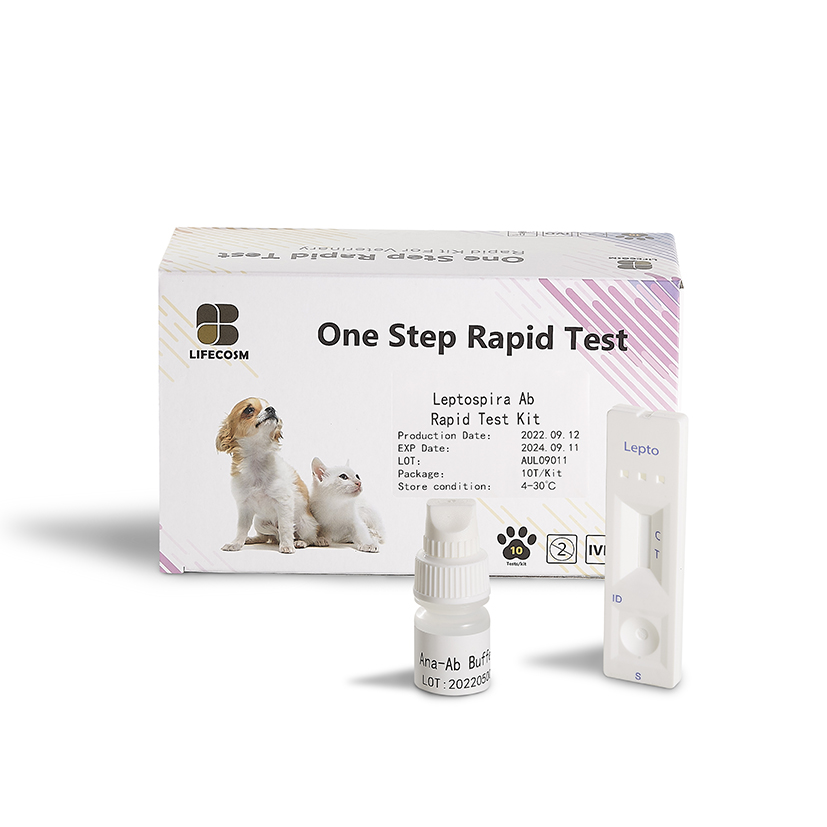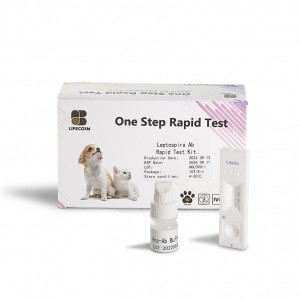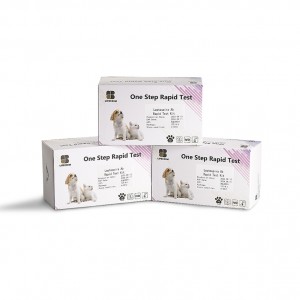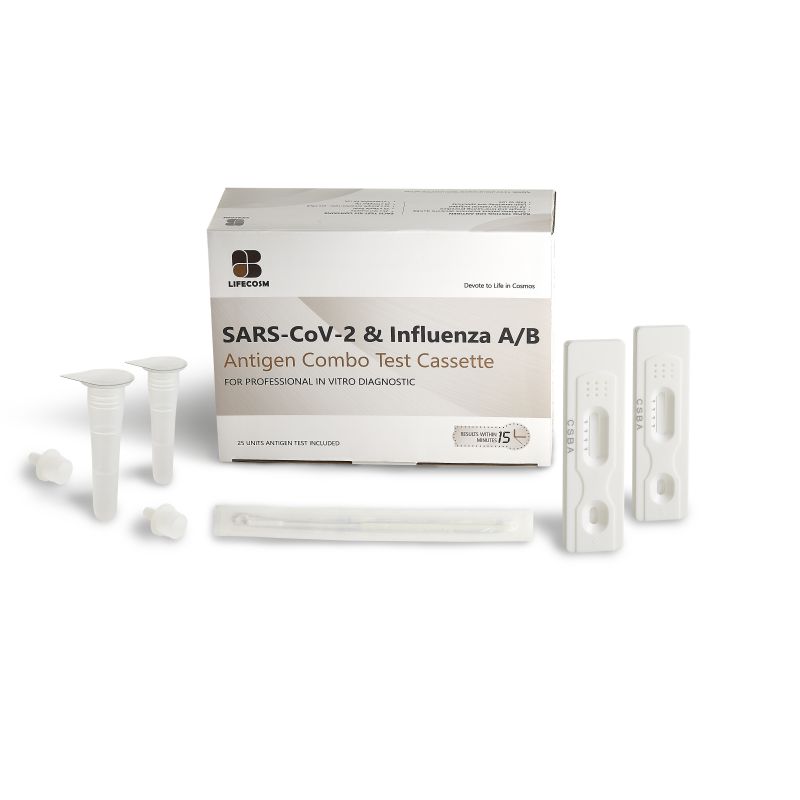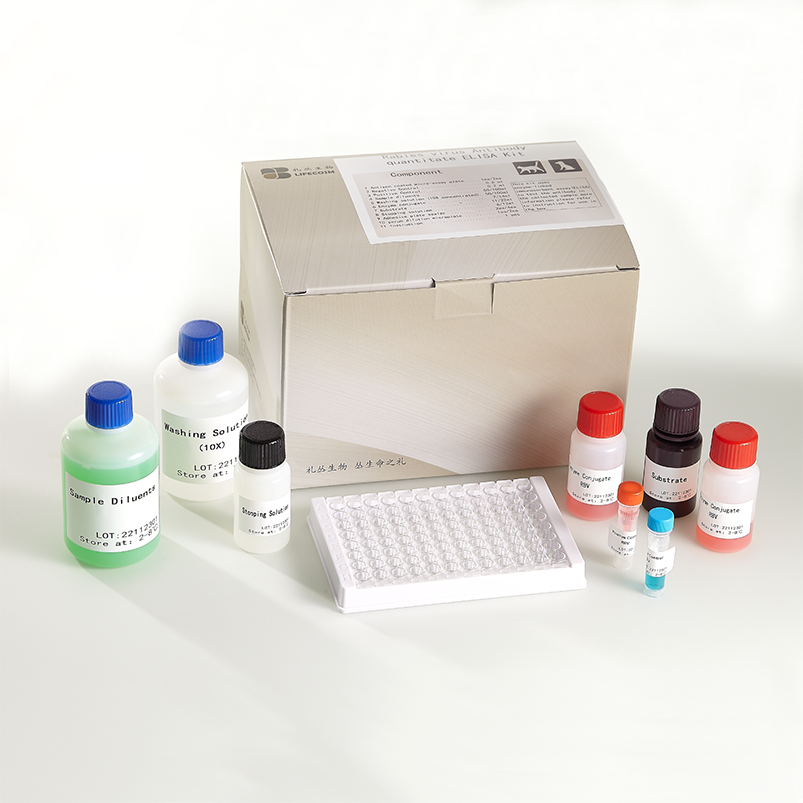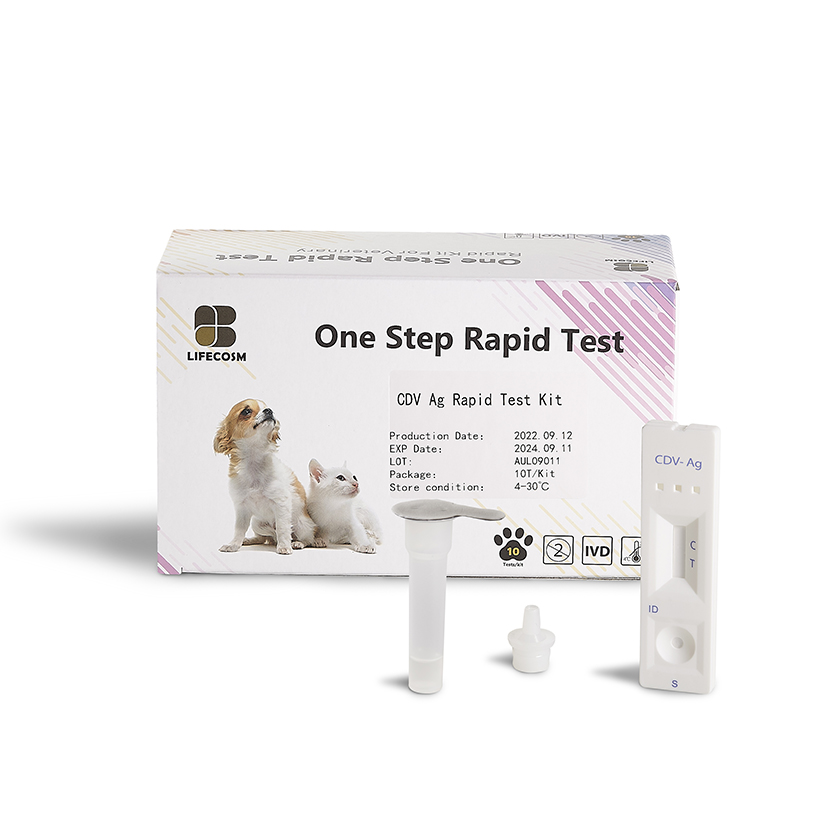
Products
Lifecosm Canine Leptospira IgM Ab Test Kit
Leptospira IgM Ab Test Kit
|
Canine Leptospira IgM Ab Test Kit |
|
| Catalog number | RC-CF13 |
| Summary | Detection of specific antibodies of Leptospira IgM within 10 minutes |
| Principle | One-step immunochromatographic assay |
| Detection Targets | Leptospira IgM antibodies |
| Sample | Canine whole blood, serum or plasma |
| Reading time | 10~ 15 minutes |
| Sensitivity | 97.7 % vs MAT for IgM |
| Specificity | 100.0 % vs MAT for IgM |
| Quantity | 1 box (kit) = 10 devices (Individual packing) |
| Contents | Test kit, Tubes, Disposable droppers |
| Caution | Use within 10 minutes after opening Use appropriate amount of sample (0.01 ml of a dropper) Use after 15~30 minutes at RT if they are stored under cold circumstances Consider the test results as invalid after 10 minutes |
Information
Leptospirosis is an infectious disease caused by Spirochete bacteria. Leptospirosis, also called Weil’s disease. Leptospirosis is a zoonotic disease of worldwide significance that is caused by infection with antigenically distinct serovars of the species Leptospira interrogans sensu lato. At least serovars of
10 are most important in dogs. The serovars in canine Leptospirosis is canicola, icterohaemorrhagiae, grippotyphosa, Pomona, Bratislava, which belong to serogroups Canicola, Icterohemorrhagiae, Grippotyphosa, Pomona, Australis.
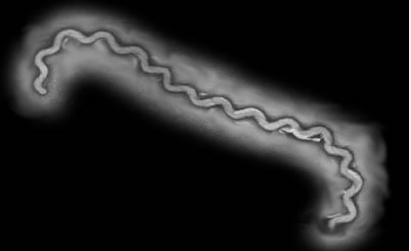
Symptoms
When symptoms do occur they usually appear between 4 and 12 days after exposure to the bacteria, and can include is fever, decreased appetite, weakness, vomiting, diarrhea, muscle pain. Some dogs may have mild symptoms or no symptoms at all, but severe cases can be fatal.
Infection primarily affects the liver and kidneys, so in serious cases, there can be jaundice. Dogs is usually most obvious in the whites of the eyes. Jaundice indicates the presence of hepatitis as a result of the destruction of liver cells by the bacteria. In rare cases, leptospirosis can also cause acute pulmonary, hemorrhage respiratory distress.
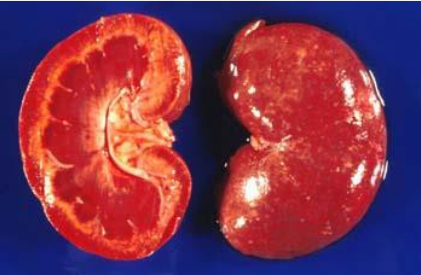
Diagnosis and Treatment
When a healthy animal comes into contact with Leptospira bacteria, its immune system will produce antibodies that are specific to those bacteria. Antibodies against Leptospira target and kill the bacteria. So antibodies is testing by the diagnostic experiment. Gold standard for diagnosing leptospirosis is a microscopic agglutination test (MAT). MAT is performed on a simple blood sample, which can easily be drawn by a veterinarian. MAT test result will show that level of antibodies. In addition, the ELISA, PCR, rapid kit has been used for diagnosis leptospirosis. Generally, younger dogs are more seriously affected than older animals, but the earlier leptospirosis is detected and treated, the better chances of recovery. Leptospirosis is treated by Amoxicillin, Erythromycin, Doxycycline (oral), Penicillin (intravenously).
Prevention
Usually, Leptospirosis prevention to vaccinated. The vaccine does not provide 100% protection. This is because there are many strains of leptospires. The transmission of leptospirosis from dogs is through direct or indirect contact with contaminated animal tissues, organs, or urine. So, always contact your veterinarian if you have concerns about a possible leptospirosis exposure to an infected animal.

